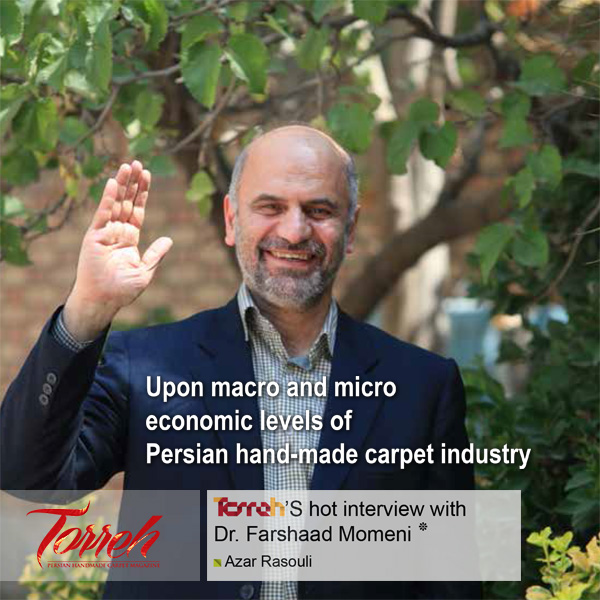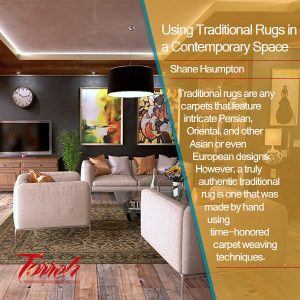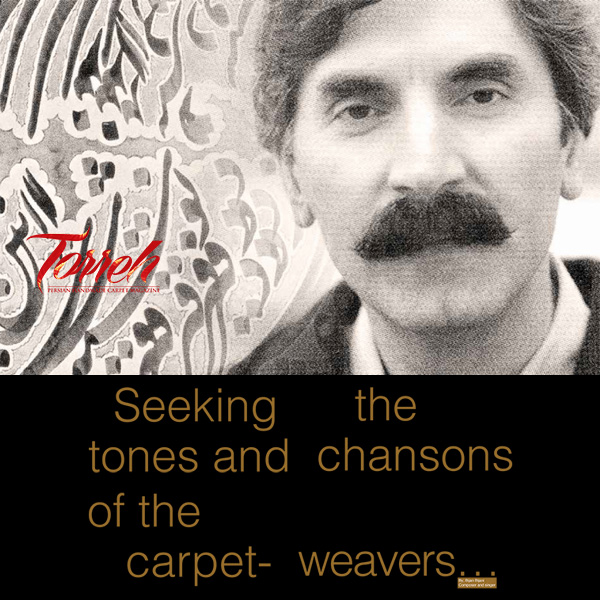TORREH’S Hot Interview with Dr. Farshaad Momeni,* | Upon Macro and Micro Economic Levels of Persian Hand-made Carpet Industry | By: Azar Rasouli
Tags
Azar Rasouli - Farshaad MomeniTORREH’S Hot Interview with Dr. Farshaad Momeni,*
Upon Macro and Micro Economic Levels of Persian Hand-made Carpet Industry
By: Azar Rasouli
In recent decades, one-dimensional, oil export related economy of Iran, has been considered as a noticeable demerit of its economics. Hand-made carpet as a one non-oil export items is at the core of economic expert’s attention, to get rid of that mentioned drawback and stay away of the one-dimensional export economic system.
As an artistic good, there are plenty of positive and negative approaches toward its economical aspect wish brings us to the idea asking one of the salient experts about that.
Toreh: is hand-made carpet potentially a noticeable item in non-oil export ones to refrain Iran from remaining as a country with one-dimensional economy pattern?
Momeni: there are few points in this case which must be revised in order to let us judge properly.
One is: unfortunately science has nothing to do with resource managing practically .hence; it resulted in so many misunderstanding and tensions in the field.
As instance, we do have concept called “economics” which can be divided into three different science majeure with three non-similar analysis level and methodology where all are considered as the same under title of” economics”
When it comes to discuss about micro level of that, normally we have to revise the affairs in the micro-economic framework. Undoubtedly, we do face the dilemma trying to handle macro-economic stuff utilizing the micro one tool! Also, using different methodology for irrelevant issues and misunderstanding the development issues with a problem in a micro level, does the same!
When we are shedding light on the carpet economy, the case is just that and supposed to be understood as we put it and not being mixed with other co-convergent issues.
We know that from the micro level paraphrasing the case, if we had a better choice to obtain the more benefit with less efforts, no one remains in this industry. The capital is inadequate and payments are not paid fairly which makes the artist live on pittance. Normally no one supposed to stay in this field any more but, we see they do not turn their back to it because they have no other choice .the same can be considered regarding to carpet merchants and exporters as well. Here we face a necessity for making balance between national economy’s production stamina and capacity and the consuming patterns.
Without this balance, according to theoretical and experimental approaches, national system will encounter the disaster.
Reviewing Iran’s history, focusing on the Ghadajar dynasty, we may figure it out that all demerits we face today, rooted in lame and inefficient management in balance between production capacity and consuming pattern. So, society paid for mentioned gap with ensuring advantages to foreign companies, burden of heavy loans and lots of other negative consequences.
Toreh: what is the challenge in policy making and economy management regarding to hand-made carpet the most?
Momeni: to me it is how to balance micro level considerations with macro one and the development issues. We can define the principles for handmade carpet where all artistic, identity related and cultural concerns are considered and meanwhile, do not threating the national development procedure and the stability of economy in macro level. I do believe it can be done, the case is, getting such insight in policy making is not as easy as being said; otherwise development issues wouldn’t be still unsolved.
Toreh: but still there are advocates and partisans and special serious demands for Persian hand-made carpet in the market, aren’t!?
Momeni: Undoubtedly! But demands cannot justify the wise reasoning of all phenomena. We should face the truth behind the case. We did have successful experiences. We are able to create new markets in which not only obtain the more benefits but also trying to promote the dignity of artistic aspect of carpet and besides reduce the threats and concerns simultaneously.
As instance, few years ago there was a corporation who made the best out of a bid for knitting a carpet where they resist against the price reduction to a reasonable level which matched to Iran’s economic interests and provided them with optimum point of benefits.
Another noticeable point, they have had established some working parlors with hygienic standards in which artists get paid fairly and the most important point was offering them proper insurance facilities. This way not only the national economy benefited but also social-humanely parity had been made from the resource distribution view of point.
Also, the combination of positive advertising factors regarding to cultural good, as we really mean it, took place and a pattern based on this endeavors emerged to convergent the all macro, micro and development level s of policy making for our carpet industry. Hence, I do believe we better not to insist on mass- production of hand-made carpets.
We must recognize some specific markets in which demanders bewitched for artistic creative aspects out of a carpet and all regulation related to exchanging an artistic item be considered for representing our hand-made carpets.
In 70’s, due to some deregulating legislations passed by pressure of few beneficiaries on the industry,
Some degrees of anti-development plans shadowed hand-made carpet field. As instance, during a trip to Germany in early 1370’s which is one of the Iranian handmade carpet’s main markets, I reviewed some parish-pump papers brought to me by an Iranian student. In one I found humiliating, harmful and anti-developing ad, offered by an Iranian carpet vendor .the ad was catechized: “by purchasing a Persian hand-made carpet, you pay the price of synthetic floor cover!”
That is resulted from mass-production of hand-made carpet which I believe might be stopped and we should seek the artistic-based markets in which we will produce and offer artistic, cultural good and besides ,obtain more financial success in compare with our present situation, so-called: “putting quality before quantity! “
Toreh: how do you assess the upcoming events hand-made carpet’s economy may face?
Momeni:
We do live on hope! Nowadays we own a noticeable group of educated people .I wish to see more of this folks taking part in decision- making when it comes to the resource distribution in our country, which raises and promotes the share of science in policy making, in order to have an honorable artistic product to stand out of the crowd and keep face and credit of our country, meanwhile not being interfering and paralyzing the stability of macro-economic development plans in broader level.
*Dr .Farshad Momeni, is assistant professor and economics faculty member of Alaameh Tabatabaei university of Iran, with up to 25 years’ experience in research about specifically economic affairs including: development economy, economics methodology, human resource and labor economics.





